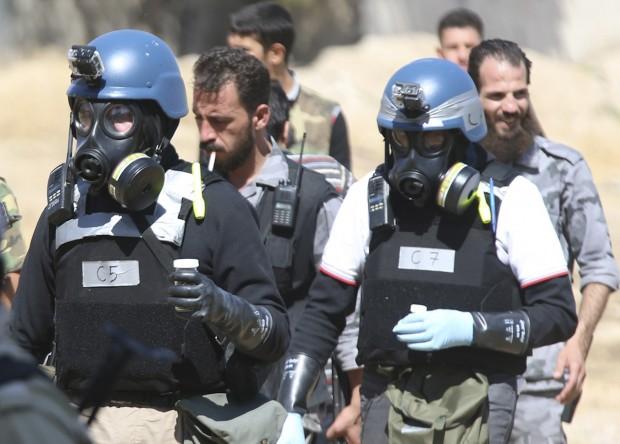Why are Chemical Weapons Worse?
U.N. chemical weapons experts wearing gas masks carry samples from one of the sites of an alleged chemical weapons attack in the Ain Tarma neighbourhood of Damascus August 28, 2013. U.N. chemical weapons experts investigating an apparent gas attack that killed hundreds of civilians in rebel-held suburbs of Damascus made a second trip across the front line to take samples. REUTERS/Mohamed Abdullah (SYRIA – Tags: – Tags: POLITICS CONFLICT TPX IMAGES OF THE DAY MEDIA) – RTX12Z2V
While President Obama focuses today on the 50th anniversary of the March on Washington his administration is grappling with a very difficult decision on Syria.
The conflict there could expand.
Israel and other nations across the Middle East are mobilizing reserves and going on high-alert because of fears of a regional war.
The US and its allies are mulling the possibility of a military strike to punish the Syrian government for its alleged use of chemical weapons last week.
But huge questions remain–over the current lack of evidence of responsibility for the attack; and what legal authority there is for war.
Peter Beinart has his own question.
Beinart is senior political writer for the Daily Beast.
He wants to know: “Why is it worse to kill civilians with chemical weapons than some other way?”
